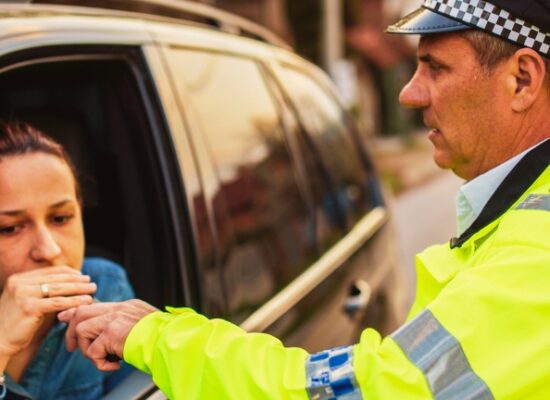As can be seen from the Illinois DUI statute below, penalties increase for each subsequent DUI. Penalties also increase in cases when someone has a blood alcohol level of twice the legal limit, .16 or higher. As can also be seen from subsection (d), enhancement (aggravated DUI) results in certain instances, most commonly when there has been an automobile accident that results in great bodily harm, permanent disability, or disfigurement. Other common DUI enhancements occur when someone is driving with an invalid license, a suspended license, or a revoked license. Also common is the DUI enhancement for not having valid insurance. Supervision is also not available in certain instances1), which means a conviction will appear on your record – also increasing the costs of your insurance.

My experience as a DUI attorney in Bloomington, IL with the Illinois DUI enhancement for driving with an invalid license, a suspended license, or a revoked license is that it is very hard to convince a prosecutor to reduce the DUI to a misdemeanor when there are other aggravating factors present; aggravating factors such as a very high BAC, a BAC over .16, when drugs are involved, when there’s an injury or accident, or someone was driving without insurance. Any of these combinations will make it very difficult for your Illinois DUI Attorney to convince a prosecutor to come down off of a felony. Mitigation factors may help in obtaining a misdemeanor, but it’s still not an easy task; throw in another aggravator, and you’re swimming upstream.

Of course, there are ways of beating DUI charges, and the burden of proof is still on the State. An experienced Illinois DUI Attorney can help. Some things an experienced Illinois DUI attorney will look at are: whether or not there was probable cause for a valid stop of the vehicle; reasonable suspicion to conduct field sobriety testing; whether the field sobriety tests were conducted properly; probable cause for the arrest; whether the 20 minute observation period was conducted properly; whether the warning to motorists was properly given; whether the breath test was administered properly; and other details a trained Illinois DUI lawyer will know to look for. Personally, I watch all of my clients’ DUI videos myself – I feel it is my obligation as their attorney.
However, the absolute best advice I can give as a practicing DUI Lawyer in Bloomington, Illinois; is to call a friend or take a cab. Fines and costs alone for a first time DUI without additional penalties is going to cost you over $2,000.00. Add the cost of an attorney, and you’re likely over $3,000.00.2) By taking a cab or calling a friend, you are also preventing possible injury to yourself or others. A cab is also likely to cost you less than $20. Penalties for DUI change every single year. 3) Prosecutors also aren’t very lenient when it comes to DUI offenses. As elected officials, their DUI statistics are scrutinized by voters, would-be opponents who may want their office, and special interest groups like M.A.D.D.
The Illinois DUI Statute Reads as Follows:
§ 625 ILCS 5/11-501. Driving while under the influence of alcohol, other drug or drugs, intoxicating compound or compounds or any combination thereof
Sec. 11-501. Driving while under the influence of alcohol, other drug or drugs, intoxicating compound or compounds or any combination thereof.
(a) A person shall not drive or be in actual physical control of any vehicle within this State while:
(1) the alcohol concentration in the person’s blood or breath is 0.08 or more based on the definition of blood and breath units in Section 11-501.2 [625 ILCS 5/11-501.2];
(2) under the influence of alcohol;
(3) under the influence of any intoxicating compound or combination of intoxicating compounds to a degree that renders the person incapable of driving safely;
(4) under the influence of any other drug or combination of drugs to a degree that renders the person incapable of safely driving;
(5) under the combined influence of alcohol, other drug or drugs, or intoxicating compound or compounds to a degree that renders the person incapable of safely driving; or
(6) there is any amount of a drug, substance, or compound in the person’s breath, blood, or urine resulting from the unlawful use or consumption of cannabis listed in the Cannabis Control Act [720 ILCS 550/1 et seq.], a controlled substance listed in the Illinois Controlled Substances Act [720 ILCS 570/100 et seq.], an intoxicating compound listed in the Use of Intoxicating Compounds Act [720 ILCS 690/0.01 et seq.], or methamphetamine as listed in the Methamphetamine Control and Community Protection Act [720 ILCS 646/1 et seq.]. Subject to all other requirements and provisions under this Section, this paragraph (6) does not apply to the lawful consumption of cannabis by a qualifying patient licensed under the Compassionate Use of Medical Cannabis Pilot Program Act [410 ILCS 130/1 et seq.] who is in possession of a valid registry card issued under that Act, unless that person is impaired by the use of cannabis.
(b) The fact that any person charged with violating this Section is or has been legally entitled to use alcohol, cannabis under the Compassionate Use of Medical Cannabis Pilot Program Act, other drug or drugs, or intoxicating compound or compounds, or any combination thereof, shall not constitute a defense against any charge of violating this Section.
(c) Penalties.
(1) Except as otherwise provided in this Section, any person convicted of violating subsection (a) of this Section is guilty of a Class A misdemeanor.
(2) A person who violates subsection (a) or a similar provision a second time shall be sentenced to a mandatory minimum term of either 5 days of imprisonment or 240 hours of community service in addition to any other criminal or administrative sanction.
(3) A person who violates subsection (a) is subject to 6 months of imprisonment, an additional mandatory minimum fine of $ 1,000, and 25 days of community service in a program benefiting children if the person was transporting a person under the age of 16 at the time of the violation.
(4) A person who violates subsection (a) a first time, if the alcohol concentration in his or her blood, breath, or urine was 0.16 or more based on the definition of blood, breath, or urine units in Section 11-501.2, shall be subject, in addition to any other penalty that may be imposed, to a mandatory minimum of 100 hours of community service and a mandatory minimum fine of $ 500.
(5) A person who violates subsection (a) a second time, if at the time of the second violation the alcohol concentration in his or her blood, breath, or urine was 0.16 or more based on the definition of blood, breath, or urine units in Section 11-501.2, shall be subject, in addition to any other penalty that may be imposed, to a mandatory minimum of 2 days of imprisonment and a mandatory minimum fine of $ 1,250.
(d) Aggravated driving under the influence of alcohol, other drug or drugs, or intoxicating compound or compounds, or any combination thereof.
(1) Every person convicted of committing a violation of this Section shall be guilty of aggravated driving under the influence of alcohol, other drug or drugs, or intoxicating compound or compounds, or any combination thereof if:
(A) the person committed a violation of subsection (a) or a similar provision for the third or subsequent time;
(B) the person committed a violation of subsection (a) while driving a school bus with one or more passengers on board;
(C) the person in committing a violation of subsection (a) was involved in a motor vehicle accident that resulted in great bodily harm or permanent disability or disfigurement to another, when the violation was a proximate cause of the injuries;
(D) the person committed a violation of subsection (a) and has been previously convicted of violating Section 9-3 of the Criminal Code of 1961 or the Criminal Code of 2012 [720 ILCS 5/9-3] or a similar provision of a law of another state relating to reckless homicide in which the person was determined to have been under the influence of alcohol, other drug or drugs, or intoxicating compound or compounds as an element of the offense or the person has previously been convicted under subparagraph (C) or subparagraph (F) of this paragraph (1);
(E) the person, in committing a violation of subsection (a) while driving at any speed in a school speed zone at a time when a speed limit of 20 miles per hour was in effect under subsection (a) of Section 11-605 of this Code [625 ILCS 5/11-605], was involved in a motor vehicle accident that resulted in bodily harm, other than great bodily harm or permanent disability or disfigurement, to another person, when the violation of subsection (a) was a proximate cause of the bodily harm;
(F) the person, in committing a violation of subsection (a), was involved in a motor vehicle, snowmobile, all-terrain vehicle, or watercraft accident that resulted in the death of another person, when the violation of subsection (a) was a proximate cause of the death;
(G) the person committed a violation of subsection (a) during a period in which the defendant’s driving privileges are revoked or suspended, where the revocation or suspension was for a violation of subsection (a) or a similar provision, Section 11-501.1 [625 ILCS 5/11-501.1], paragraph (b) of Section 11-401 [625 ILCS 5/11-401], or for reckless homicide as defined in Section 9-3 of the Criminal Code of 1961 or the Criminal Code of 2012;
(H) the person committed the violation while he or she did not possess a driver’s license or permit or a restricted driving permit or a judicial driving permit or a monitoring device driving permit;
(I) the person committed the violation while he or she knew or should have known that the vehicle he or she was driving was not covered by a liability insurance policy;
(J) the person in committing a violation of subsection (a) was involved in a motor vehicle accident that resulted in bodily harm, but not great bodily harm, to the child under the age of 16 being transported by the person, if the violation was the proximate cause of the injury;
(K) the person in committing a second violation of subsection (a) or a similar provision was transporting a person under the age of 16; or
(L) the person committed a violation of subsection (a) of this Section while transporting one or more passengers in a vehicle for-hire.
(2)
(A) Except as provided otherwise, a person convicted of aggravated driving under the influence of alcohol, other drug or drugs, or intoxicating compound or compounds, or any combination thereof is guilty of a Class 4 felony.
(B) A third violation of this Section or a similar provision is a Class 2 felony. If at the time of the third violation the alcohol concentration in his or her blood, breath, or urine was 0.16 or more based on the definition of blood, breath, or urine units in Section 11-501.2, a mandatory minimum of 90 days of imprisonment and a mandatory minimum fine of $ 2,500 shall be imposed in addition to any other criminal or administrative sanction. If at the time of the third violation, the defendant was transporting a person under the age of 16, a mandatory fine of $ 25,000 and 25 days of community service in a program benefiting children shall be imposed in addition to any other criminal or administrative sanction.
(C) A fourth violation of this Section or a similar provision is a Class 2 felony, for which a sentence of probation or conditional discharge may not be imposed. If at the time of the violation, the alcohol concentration in the defendant’s blood, breath, or urine was 0.16 or more based on the definition of blood, breath, or urine units in Section 11-501.2, a mandatory minimum fine of $ 5,000 shall be imposed in addition to any other criminal or administrative sanction. If at the time of the fourth violation, the defendant was transporting a person under the age of 16 a mandatory fine of $ 25,000 and 25 days of community service in a program benefiting children shall be imposed in addition to any other criminal or administrative sanction.
(D) A fifth violation of this Section or a similar provision is a Class 1 felony, for which a sentence of probation or conditional discharge may not be imposed. If at the time of the violation, the alcohol concentration in the defendant’s blood, breath, or urine was 0.16 or more based on the definition of blood, breath, or urine units in Section 11-501.2, a mandatory minimum fine of $ 5,000 shall be imposed in addition to any other criminal or administrative sanction. If at the time of the fifth violation, the defendant was transporting a person under the age of 16, a mandatory fine of $ 25,000, and 25 days of community service in a program benefiting children shall be imposed in addition to any other criminal or administrative sanction.
(E) A sixth or subsequent violation of this Section or similar provision is a Class X felony. If at the time of the violation, the alcohol concentration in the defendant’s blood, breath, or urine was 0.16 or more based on the definition of blood, breath, or urine units in Section 11-501.2, a mandatory minimum fine of $ 5,000 shall be imposed in addition to any other criminal or administrative sanction. If at the time of the violation, the defendant was transporting a person under the age of 16, a mandatory fine of $ 25,000 and 25 days of community service in a program benefiting children shall be imposed in addition to any other criminal or administrative sanction.
(F) For a violation of subparagraph (C) of paragraph (1) of this subsection (d), the defendant, if sentenced to a term of imprisonment, shall be sentenced to not less than one year nor more than 12 years.
(G) A violation of subparagraph (F) of paragraph (1) of this subsection (d) is a Class 2 felony, for which the defendant, unless the court determines that extraordinary circumstances exist and require probation, shall be sentenced to: (i) a term of imprisonment of not less than 3 years and not more than 14 years if the violation resulted in the death of one person; or (ii) a term of imprisonment of not less than 6 years and not more than 28 years if the violation resulted in the deaths of 2 or more persons.
(H) For a violation of subparagraph (J) of paragraph (1) of this subsection (d), a mandatory fine of $ 2,500, and 25 days of community service in a program benefiting children shall be imposed in addition to any other criminal or administrative sanction.
(I) A violation of subparagraph (K) of paragraph (1) of this subsection (d), is a Class 2 felony and a mandatory fine of $ 2,500, and 25 days of community service in a program benefiting children shall be imposed in addition to any other criminal or administrative sanction. If the child being transported suffered bodily harm, but not great bodily harm, in a motor vehicle accident, and the violation was the proximate cause of that injury, a mandatory fine of $ 5,000 and 25 days of community service in a program benefiting children shall be imposed in addition to any other criminal or administrative sanction.
(J) A violation of subparagraph (D) of paragraph (1) of this subsection (d) is a Class 3 felony, for which a sentence of probation or conditional discharge may not be imposed.
(3) Any person sentenced under this subsection (d) who receives a term of probation or conditional discharge must serve a minimum term of either 480 hours of community service or 10 days of imprisonment as a condition of the probation or conditional discharge in addition to any other criminal or administrative sanction.
(e) Any reference to a prior violation of subsection (a) or a similar provision includes any violation of a provision of a local ordinance or a provision of a law of another state or an offense committed on a military installation that is similar to a violation of subsection (a) of this Section.
(f) The imposition of a mandatory term of imprisonment or assignment of community service for a violation of this Section shall not be suspended or reduced by the court.
(g) Any penalty imposed for driving with a license that has been revoked for a previous violation of subsection (a) of this Section shall be in addition to the penalty imposed for any subsequent violation of subsection (a).
(h) For any prosecution under this Section, a certified copy of the driving abstract of the defendant shall be admitted as proof of any prior conviction. Once someone is arrested with sufficient probable cause for DUI, their license will be suspended provided: (1) that person refuses to provide a blood, breath, or urine sample to determine their blood alcohol content (2) they provide a sample that has a blood alcohol content above .08 (3) they provide a sample having any amount of cannabis or other controlled substances in their blood, breath, or urine. The relevant section of the Illinois Vehicle Code requiring this suspension is found at 625 ILCS 5/11-501.1. The length of this suspension is controlled by 625 ILCS 5/6-208.

